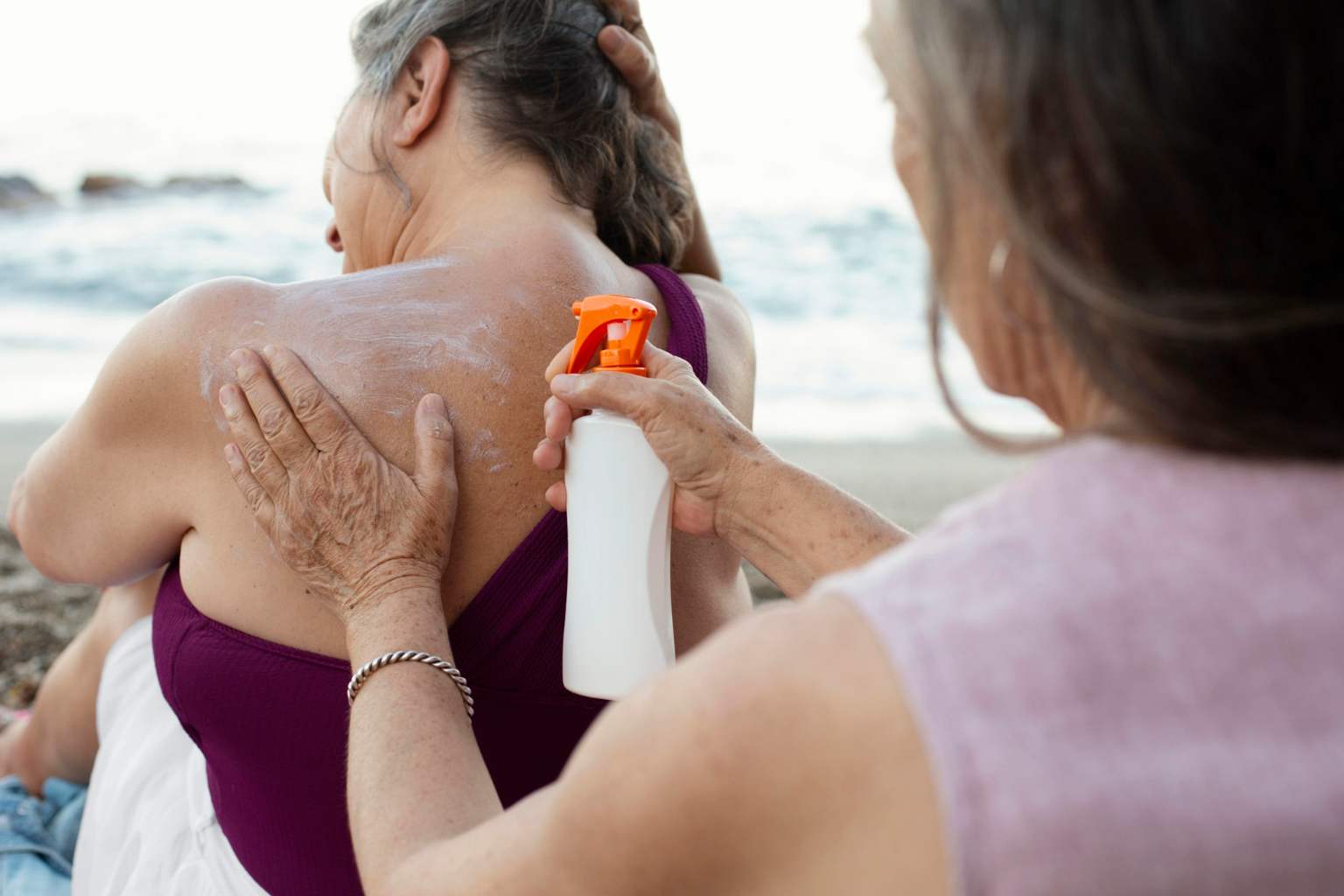Summer’s warmth calls for sunscreen, but for those over 65, protecting the skin from the sun’s harsh effects means going beyond just slathering on lotion. Our skin grows thinner and more fragile as we age, making it more sensitive to UV rays. On top of that, seniors often experience changes in how their bodies regulate temperature, making it easier to overheat. So, while sunscreen is essential, it’s only one piece of the puzzle in staying safe under the sun.
Choosing and using the right sunscreen for older adults
As we get older, the skin doesn’t bounce back the way it used to. This natural change makes the skin more vulnerable to sun damage, ranging from painful sunburns to serious conditions like skin cancer. That’s why using a sunscreen with a sun protection factor (SPF) of at least 30 is important.
Water-resistant formulas are best, especially if you sweat or swim, so your protection won’t quickly wash away. But equally important is how you apply sunscreen: generous, thorough coverage of all exposed areas, including often forgotten spots like the ears, neck, and lips, is key. Reapplying every two hours—or immediately after swimming or heavy sweating—helps keep you shielded throughout your outdoor time.
Essential complementary measures to protect seniors from the sun
Sunscreen alone won’t keep you safe in the summer heat. For older adults, combining it with other protective habits is vital. Wearing long-sleeved shirts made from light, breathable fabrics can help block direct sunlight without making you too hot.
Protecting sensitive areas means more than just skin care. Using sunglasses with strong UV filters guards your eyes, and a wide-brimmed hat or cap shields your face and scalp from intense rays. Avoiding the midday sun between 11 a.m. and 4 p.m. can significantly reduce your exposure to the strongest UV rays. Plan outdoor activities in the cooler, gentler hours of early morning or late afternoon.
When outside, seek shade under trees, awnings, or pergolas to give your skin a break. And always remember to pair shady retreats with your sunscreen routine.
Why staying hydrated matters even more for older adults in hot weather
Heat and sun exposure can quickly sap your body’s water, but many seniors don’t notice they’re thirsty until it’s too late. Dehydration risks increase because the natural thirst mechanism dulls with age, making it easy to become dangerously dry without realizing it.
Drinking plenty of fluids throughout the day—preferably water—is crucial. It’s a simple step with a big payoff for maintaining your energy, keeping your skin healthy, and helping your body cool itself effectively.
Looking back, I remember a summer when my grandmother insisted she didn’t need water breaks or sunscreen because she “was used to the heat.” She soon learned the hard way that the sun affects older skin differently. Since then, she’s embraced all these extra steps—proper sunscreen use, sun-safe clothing, timing outdoor trips wisely, and drinking lots of water. Watching her feel better and safer outdoors was a powerful reminder that protecting ourselves requires both knowledge and action.
How do you protect yourself or your loved ones during hot, sunny days? Do you have favorite sun-safety tips or experiences that could help others? Share your thoughts and stories below—your advice might be just what someone else needs to hear! And if you found this helpful, don’t forget to share it with friends and family who could use a little more sun smart.
